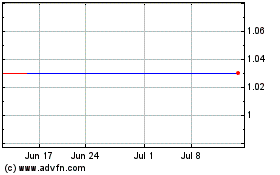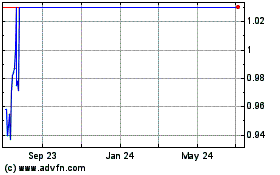Spectrum Pharmaceuticals (NasdaqGS: SPPI), a biotechnology
Company with fully integrated commercial and drug development
operations with a primary focus in Hematology and Oncology,
announced two oral presentations of data on FOLOTYN and research
progress for the treatment of Peripheral T-Cell Lymphoma (PTCL) at
the 59th American Society of Hematology (ASH).
Abstract #818: Pralatrexate in Combination with
Cyclophosphamide, Doxorubicin, Vincristine, and Prednisone (CHOP)
in Previously Untreated Patients with Peripheral T-Cell Lymphoma
(PTCL): A Phase 1 Dose-Escalation Study
In this study presented by Dr. Andrei Shustov from Division of
Hematology, University of Washington, a total of 31 patients have
been enrolled (19 in Part 1; 12 in Part 2). MTD was not reached and
pralatrexate dose of 30 mg/m2 in combination with CHOP was selected
for Part 2 of the study as predefined by the protocol. The majority
of patients were male, white, with the median age of 57.7 years
(range, 18-78) at the time of enrollment. PTCL diagnoses included:
anaplastic large cell lymphoma, anaplastic lymphomakinase-negative
(ALCL, ALK-, n=5), peripheral T-cell lymphoma, not-otherwise
specified (PTCL-NOS, n=18), and angioimmunoblastic T-cell lymphoma
(AITL, n=5). Fol-CHOP was generally well tolerated with median RDI
of 98%. Grade 3/4 adverse events included anemia (23%), neutropenia
(23%), fatigue (13%), and vomiting (13%), as well as febrile
neutropenia, nausea, and mucositis each in 10% of the patients.
SAEs were observed in 13 patients, treatment related SAEs were
anemia, febrile neutropenia, dehydration, mucositis, and nausea.
Six patients withdrew from study before the completion of the
follow-up, and dose reduction or dose delay occurred in four
patients. In the 29 patients evaluable for response, the
investigator assessed objective response (OR) and complete response
(CR) rates were 90% and 66%, respectively.
Abstract #342: The Role of Upfront Hematopoietic Stem Cell
Transplantation (HSCT) in Peripheral T-Cell Lymphoma (PTCL)
Patients in Complete Remission (CR) with a Special Focus on Nodal
PTCL: Report from the Comprehensive Oncology Measures for
Peripheral T-Cell Lymphoma Treatment (COMPLETE), a Prospective
Multicenter Cohort Study
In this study, presented by Dr. Steven Park from Levine Cancer
Institute, a total of 499 PTCL patients were enrolled in COMPLETE
over 4 years. Two hundred thirteen patients achieved a CR following
frontline therapy and had the required locked records for the
analysis with a median follow-up of 2.9 years (Range 1.9-4.0). One
hundred forty nine (70%) of these received induction therapy
without HSCT consolidation and 64 (30%) underwent either autologous
(n = 49) or allogeneic (n = 15) HSCT. This is the first report from
the largest prospective PTCL database in the U.S. to date to
examine the role of HSCT in PTCL patients who are in first CR. Our
data demonstrate potential survival advantages of upfront HSCT in
patients with nodal PTCL who achieve CR. However, the results
should be interpreted with caution given a relatively short median
follow up as well as the non-randomized study design. The role of
HSCT among various groups of PTCL patients in first CR should
further be evaluated in randomized controlled trials.
“We are honored that two oral presentations and multiple
abstracts were presented at the 59th ASH Meeting,” said Rajesh C.
Shrotriya, MD, Chairman and Chief Executive Officer of Spectrum
Pharmaceuticals. “FOLOTYN was the first drug approved for the
treatment of relapsed or refractory PTCL. PTCL is an aggressive
disease with a poor prognosis and we are excited that FOLOTYN has
the potential to improve outcome for PTCL patients.”
Spectrum Pharmaceuticals, Inc.
Spectrum Pharmaceuticals is a leading biotechnology company
focused on acquiring, developing, and commercializing drug
products, with a primary focus in Hematology and Oncology. Spectrum
currently markets six hematology/oncology drugs, and has an
advanced stage pipeline that has the potential to transform
the Company. Spectrum's strong track record for in-licensing and
acquiring differentiated drugs, and expertise in clinical
development have generated a robust, diversified, and growing
pipeline of product candidates in advanced-stage Phase 2 and Phase
3 studies. More information on Spectrum is available
at www.sppirx.com.
About FOLOTYN®
FOLOTYN, (pralatrexate injection), a folate analogue metabolic
inhibitor, was discovered by Memorial Sloan-Kettering Cancer
Center, SRI International and Southern Research
Institute and developed by Allos Therapeutics.
In September 2009, the U.S. Food and Drug
Administration (FDA) granted accelerated approval for FOLOTYN
for use as a single agent for the treatment of patients with
relapsed or refractory PTCL. This indication is based on overall
response rate. Clinical benefit such as improvement in
progression-free survival or overall survival has not been
demonstrated. FOLOTYN has been available to patients in the U.S.
since October 2009. An updated analysis of data from PROPEL,
the pivotal study of FOLOTYN in patients with relapsed or
refractory PTCL, was published in the March 20,
2011 issue of the Journal of Clinical Oncology.
Important FOLOTYN® Safety
Information
Warnings and Precautions
FOLOTYN may suppress bone marrow function, manifested by
thrombocytopenia, neutropenia, and anemia. Monitor blood counts and
omit or modify dose for hematologic toxicities.
Mucositis may occur. If greater-than or equal to Grade 2
mucositis is observed, omit or modify dose. Patients should be
instructed to take folic acid and receive vitamin B12 to
potentially reduce treatment-related hematological toxicity and
mucositis.
Fatal dermatologic reactions may occur. Dermatologic reactions
may be progressive and increase in severity with further treatment.
Patients with dermatologic reactions should be monitored closely,
and if severe, FOLOTYN should be withheld or discontinued. Tumor
lysis syndrome may occur. Monitor patients and treat if needed.
FOLOTYN can cause fetal harm. Women should avoid becoming
pregnant while being treated with FOLOTYN and pregnant women should
be informed of the potential harm to the fetus.
Use caution and monitor patients when administering FOLOTYN to
patients with moderate to severe renal function impairment.
Elevated liver function test abnormalities may occur and require
monitoring. If liver function test abnormalities are greater-than
or equal to Grade 3, omit or modify dose.
Adverse Reactions
The most common adverse reactions were mucositis (70%),
thrombocytopenia (41%), nausea (40%), and fatigue (36%). The most
common serious adverse events are pyrexia, mucositis, sepsis,
febrile neutropenia, dehydration, dyspnea, and
thrombocytopenia.
Use in Specific Patient Population
Nursing mothers should be advised to discontinue nursing or the
drug, taking into consideration the importance of the drug to the
mother.
Drug Interactions
Co-administration of drugs subject to renal clearance (e.g.,
probenecid, NSAIDs, and trimethoprim/sulfamethoxazole) may result
in delayed renal clearance.
Please see FOLOTYN Full Prescribing Information
at www.FOLOTYN.com.
Forward-looking statement — This press release may contain
forward-looking statements regarding future events and the future
performance of Spectrum Pharmaceuticals that involve risks and
uncertainties that could cause actual results to differ materially.
These statements are based on management's current beliefs and
expectations. These statements include, but are not limited to,
statements that relate to Spectrum’s business and its future,
including certain company milestones, Spectrum's ability to
identify, acquire, develop and commercialize a broad and diverse
pipeline of late-stage clinical and commercial products, the timing
and results of FDA decisions, and any statements that relate to the
intent, belief, plans or expectations of Spectrum or its
management, or that are not a statement of historical fact. Risks
that could cause actual results to differ include the possibility
that Spectrum’s existing and new drug candidates may not prove safe
or effective, the possibility that our existing and new
applications to the FDA and other regulatory agencies may not
receive approval in a timely manner or at all, the possibility that
our existing and new drug candidates, if approved, may not be more
effective, safer or more cost efficient than competing drugs, the
possibility that our efforts to acquire or in-license and develop
additional drug candidates may fail, our dependence on third
parties for clinical trials, manufacturing, distribution and
quality control and other risks that are described in further
detail in the Company's reports filed with the Securities and
Exchange Commission. The Company does not plan to update any such
forward-looking statements and expressly disclaims any duty to
update the information contained in this press release except as
required by law.
SPECTRUM PHARMACEUTICALS, INC.® and FOLOTYN® are registered
trademarks of Spectrum Pharmaceuticals, Inc and its affiliate.
REDEFINING CANCER CARE™ and the Spectrum Pharmaceuticals logos are
trademarks owned by Spectrum Pharmaceuticals, Inc. Any other
trademarks are the property of their respective owners.
© 2017 Spectrum Pharmaceuticals, Inc. All Rights Reserved
View source
version on businesswire.com: http://www.businesswire.com/news/home/20171213005267/en/
Spectrum PharmaceuticalsShiv KapoorVice President, Strategic
Planning & Investor
Relations702-835-6300InvestorRelations@sppirx.com
Spectrum Pharmaceuticals (NASDAQ:SPPI)
Historical Stock Chart
From Mar 2024 to Apr 2024

Spectrum Pharmaceuticals (NASDAQ:SPPI)
Historical Stock Chart
From Apr 2023 to Apr 2024
